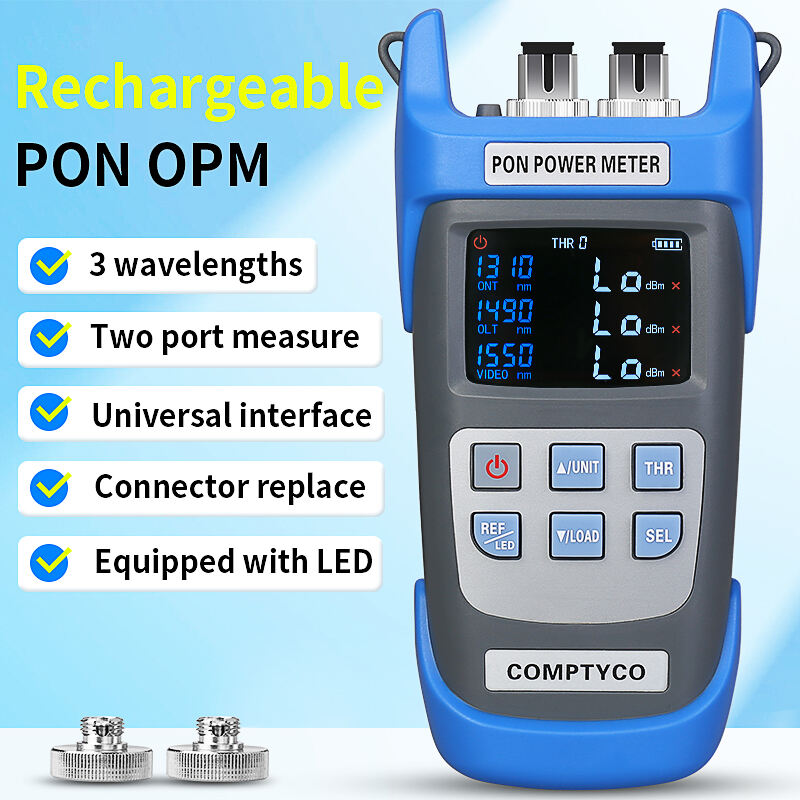optical power meter function
An optical power meter is a precision instrument designed to measure the power level of optical signals in fiber optic networks and optical systems. This sophisticated device serves as an essential tool for telecommunications professionals, network engineers, and researchers who work with fiber optic systems. The instrument operates by converting optical signals into electrical signals through specialized sensors, providing accurate measurements in units such as dBm or watts. The meter's primary functions include real-time power monitoring, loss measurement in optical links, and system performance verification. Modern optical power meters feature advanced capabilities such as data logging, multiple wavelength calibration, and automated measurement sequences. These devices typically offer measurement ranges from +30 dBm to -80 dBm, ensuring compatibility with various optical network applications. The technology incorporates photodiode sensors, typically made from materials like germanium or indium gallium arsenide, which provide excellent sensitivity across different wavelength ranges. Additionally, many units feature USB connectivity for data transfer and remote operation, making them invaluable for both field operations and laboratory testing environments.


